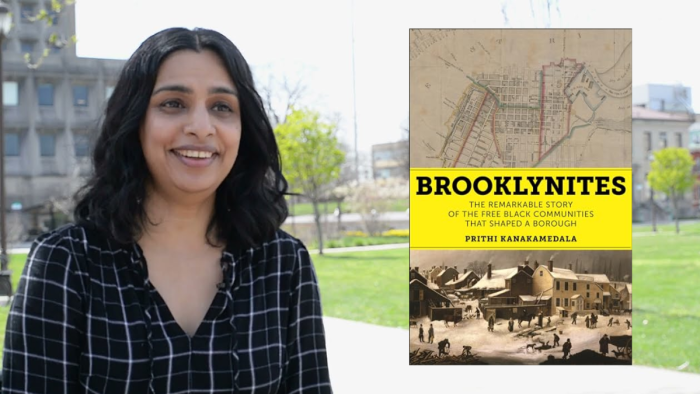

ACLS recently caught up with David Sterling Brown F’21, Mellon/ACLS Scholars and Society Fellow, to learn about his book Shakespeare’s White Others (Cambridge University Press, 2023) and his fellowship experience.
David Sterling Brown is an award-winning Shakespeare and critical race studies scholar and an associate professor of English at Trinity College. The Mellon/ACLS Scholars and Society Fellowship Program was a three-year effort from 2019 to 2021 to support doctoral faculty as they advanced publicly engaged humanities research and promote change in doctoral education. As part of his fellowship, Brown worked on the project “Minding Whiteness: The Racial Imaginaries of Our Time” and partnered with The Racial Imaginary Institute.
Watch the interview and read the transcript below.
“‘Minding Whiteness’ actually started out as the title of my current book project, Shakespeare’s White Others. I was really interested in thinking about racial whiteness and how that impacts our world, and also how it’s connected to anti-Blackness as well, when I see it play out in the ways that it does in my book. I had opportunities to do articles and book chapters in other collections and journals that allowed me to really start exploring that type of work.
The Mellon/ACLS Scholars and Society Fellowship also connected me with a residency host. I worked with Claudia Rankine’s the Racial Imaginary Institute. I got connected with people who are working in visual arts and people who are working on poetry, or psychoanalytic work in terms of therapy. There’s so much for me to think about outside of what I normally do as a humanities scholar, in terms of the normal day to day of teaching, reading, writing. I had opportunities to go visit art galleries, which I wasn’t really spending much time in prior to the fellowship. And also just sitting down with people who have curated art exhibitions and things of that nature really opened my eyes up.”
It’s important that people know that this work exists because a lot of people know about Shakespeare, and if they know about Shakespeare, I think it’s important that they know about Shakespeare and race too.
“That’s a really hard question to answer, because there were so many, but I would say definitely the opportunities that I had to be supported by people. Writing a book is incredibly hard and there were tears throughout the process, but there were also many people, including my family, who were there to help dry those tears. I had the opportunity to meet a UPenn professor Tukufu Zuberi and talk with him about his work, which I do cite and incorporate into my book. I learned from him in that moment how it wasn’t always that obvious to him that we were doing that kind of work in Shakespeare studies, in terms of thinking about race and whiteness. That was a real sort of eye-opening moment for me that helped me to understand that the mission of ‘Minding Whiteness’ was a pretty good one. It’s important that people know that this work exists because a lot of people know about Shakespeare, and if they know about Shakespeare, I think it’s important that they know about Shakespeare and race too.”
“The Scholars and Society Fellowship gave me freedom. In addition to the creativity that I talked about, the freedom to explore, the freedom to go down a road and maybe it’s not the right road, so I need to make a U-turn and go down another road until I really figured things out—that’s what I did with this project, ‘Minding Whiteness.’ And so there was a lot of trial and error, and there was also a lot of me wanting to get it right. One of the things that I learned, though, is when you are thinking outside of the box, there’s no real such thing as getting it right. It’s what feels right, but there’s no sort of right answer to the way that you approach that.”